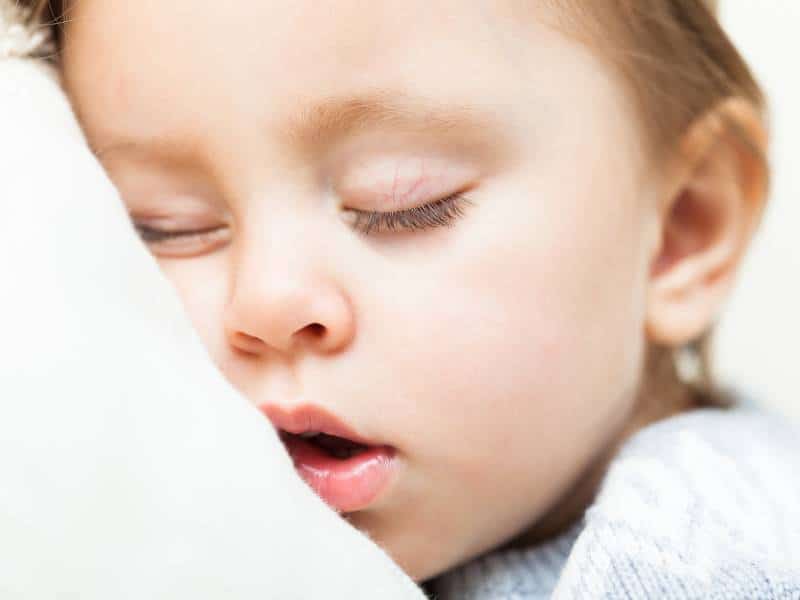
New Technologies To Treat Sleep Apnea | Vivos.com
leep apnea is a widespread sleep disorder marked by pauses in breathing or shallow breaths during sleep, that affects countless individuals. These interruptions, which happen multiple times per hour, lead to fragmented sleep and decreased oxygen levels in the blood. Remarkably, in late 2023, Vivos Therapeutics received the first ever FDA 510(k) clearance for an oral appliance that treats obstructive sleep apnea.
Sleep apnea symptoms include loud snoring, daytime sleepiness, and morning headaches. Traditional treatments, such as lifestyle changes, oral medical devices and/or PAP machines, and surgery, have been the mainstay for managing sleep apnea.
Still, the development of new technologies offers promising alternatives. These are to improve the effectiveness and comfort of treatment. We’ll explain these new technologies to treat sleep apnea here.
Understanding Sleep Apnea
In sleep apnea, a person’s breathing stops and starts repeatedly during sleep. This can result in feeling tired during the day. It can affect a person’s health. It is important to know the signs and get help if you think you are suffering from sleep apnea.
Explanation Of Sleep Apnea Types: Obstructive, Central, And Complex
Sleep apnea is classified into three main types: obstructive, central, and complex. Obstructive sleep apnea (OSA) is mostly a general form. It takes place when the throat muscles relax too much during sleep. It causes the closing of the airway.
Central sleep apnea (CSA) involves the brain failing to send proper indications to the muscles. Those muscles control breathing. Complex sleep apnea syndrome (CompSAS) is a mixture of both. It means it combines obstructive and central sleep apnea.
Common Causes And Risk Factors
Some common causes exist. For example, obesity, getting older, being male, and having a family history of sleep apnea. Also, having certain physical features in the throat and mouth.
All the above-mentioned causes can enhance the sleep apnea risk.
It is important to talk to a doctor if you have any concerns.
Health Consequences Of Untreated Sleep Apnea
When sleep apnea is not treated, it can cause problems. For example, heart disease, high blood pressure, stroke, diabetes, and trouble thinking clearly. Taking care of this condition early can help prevent these serious health issues.
It’s important to talk to a doctor if you think you are suffering from sleep apnea.
Traditional Treatments For Sleep Apnea
Traditional treatments for sleep apnea focus on lifestyle modifications, oral medical devices and/or PAP machines, oral appliances, and surgery. Let’s discuss all of these in detail.
Lifestyle Changes: Weight Loss, Sleep Position, And Avoiding Alcohol
Make healthy changes. For example, lose weight, sleep on your side, and not drink alcohol before bed. All these can help lessen the effects of this health condition. These simple adjustments can improve your sleep and health.
It’s important to talk to a doctor about the best ways to manage sleep apnea.
Oral Medical Devices And/Or PAP Machines
Doctors can suggest ways to keep air moving smoothly for sleep apnea, such as oral medical devices and PAP machines. Using these makes it easier for the person to breathe and get a good night’s sleep.
Oral Appliances And Surgery
Oral appliances for sleep apnea hold the jaw in a position that helps keep the airway open during sleep.
In November 2023, Vivos Therapeutics achieved a milestone. We got an unprecedented FDA 510(k) clearance for their oral device. It is designed to combat obstructive sleep apnea.
After receiving authorization, these devices can manage mild, moderate, and severe OSA in adults aged 18 and up. They can be used with positive airway pressure (PAP) and myofunctional therapy tailored to individual needs.
Limitations And Challenges Associated With Traditional Treatments
Some treatments for sleep apnea can be uncomfortable. For example, CPAP therapy. It makes it hard for people to use them. Many patients find wearing the CPAP mask uncomfortable or feel claustrophobic. This can make it challenging for some people to stick with the treatment. AThere are many recalling issues too.
New Technologies In Treating Sleep Apnea
New technologies are helping individuals with sleep apnea breathe better at night. For example, special masks and mouthpieces. These tools can improve sleep quality and health for those with this condition.
Overview Of Technological Advancements In Diagnosis And Treatment
Recent advancements in technology offer promising alternatives for diagnosing and treating sleep apnea. Wearable devices can check sleep patterns and detect respiratory disturbances. For example, smartwatches and wristbands are equipped with sensors.
Positive Airway Pressure (PAP) device innovations include smaller and quieter machines. It also has adjustable pressure settings for enhanced comfort. Smart PAP machines feature integrated tracking capabilities. It also has automatic adjustments based on real-time data.
Detailed Descriptions Of New Technologies
New technologies are inventions or tools. They help us do things better. They can include things like smart devices, robots, and medical equipment. Learning about new technologies can be fun and exciting. Since it helps us understand how the world around us is always changing and improving.
Wearable Devices
Wearable devices are special masks. These are new technologies helping individuals with sleep apnea. These devices can be worn while sleeping. It helps keep airways open and improves breathing.
They make it easier for individuals with sleep apnea to get a good night’s rest and stay healthy.
Positive Airway Pressure (PAP) Device Innovations
Positive Airway Pressure (PAP) devices are new technologies. They help individuals with sleep apnea breathe better at night. These devices use gentle air pressure. It keeps airways open while sleeping, reducing interruptions in breathing.
PAP devices make it easier for those with sleep apnea to get a restful night’s sleep.
Smart CPAP Machines
Smart CPAP machines are new technologies. They help individuals with sleep apnea breathe better while they sleep. These machines can adjust air pressure levels automatically. It is based on the individual’s needs. It makes them more comfortable to use.
Smart CPAP machines provide effective treatment. They improve sleep quality for those with sleep apnea.
Implantable Devices
Implantable devices are a new technology used to treat sleep apnea. They are small devices that are surgically placed in the body to help keep the airway open during sleep. This can improve breathing and reduce snoring. These help individuals with sleep apnea to get better rest at night.
Advanced Oral Appliances
Advanced oral appliances are a new technology to treat sleep apnea. These are custom-made devices that are worn in the mouth during sleep. They help to reposition the jaw and tongue. It keeps the airway open. It makes breathing easier and reduces symptoms of this sleep apnea.
Software Applications And Mobile Monitoring
Software applications and mobile monitoring are new technologies. They can help treat sleep apnea. These tools track your sleep patterns and provide important information to doctors.
They can also remind you to use your breathing machine. This technology helps individuals with sleep apnea. They can get better sleep and feel more rested.
Machine Learning And AI In Sleep Apnea Management
Machine learning and AI are new technologies. They can help doctors better treat sleep apnea. They can analyze data from sleep studies. They help create personalized treatment plans for patients. This helps improve the quality of sleep and health for individuals with sleep apnea.
Patient-Centric Approach To Treatment
When it comes to treating sleep apnea, doctors are now focusing on a patient-centric approach. This means putting the patient’s needs and preferences at the center of their treatment plan. New technologies are being developed. These are to help make the treatment process more comfortable.
These also make the treatment process effective for those suffering from sleep apnea. Let’s learn about it in detail.
Importance Of Personalized Treatment Plans
Personalized treatment plans for sleep apnea are important. Since they are tailored to each person’s specific needs. This helps ensure that the treatment is effective. It can also improve their sleep quality.
By using personalized plans, doctors can create the best solution for each individual’s condition.
Role Of Technology In Customizing Treatment For Individual Needs
Technology plays a key role in customizing treatment for individual needs. For example, treating sleep apnea. One new technology uses a special device that adjusts the air pressure. It is based on the person’s breathing patterns during sleep.
This helps improve the effectiveness of the treatment. It ensures each person gets the right amount of air they need.
How Patients Can Work With Healthcare Providers To Choose The Best Option
Patients can work with healthcare providers to choose the best treatment option for sleep apnea. They can do it by discussing their symptoms, preferences, and concerns. They can explore new technologies.
For example, PAP machines, oral appliances, or surgery to find the best fit for their needs. Collaboration with providers is key to finding the most effective solution.
New Technologies To Treat Sleep Apnea: Conclusion
Innovations in technology have revolutionized the diagnosis and treatment of sleep apnea. These offer patients a wider range of options for managing their condition. From wearable devices to advanced oral appliances, these technologies are improving treatment effectiveness, comfort, and patient compliance.
A patient-centric approach that integrates personalized care and shared decision-making is essential for optimizing outcomes. It will enhance the quality of life for individuals with sleep apnea.
As technology continues to evolve, the future holds promising advancements in the field of sleep medicine.
How Dr. Jung Can Help
Your sleep & airway focused dentist in Mansfield is an excellent starting point for addressing sleep concerns because we are skilled in recognizing the signs of this condition, especially those related to oral and facial development. Dr. Jung can identify the dental impacts of sleep apnea. Our familiarity with your oral health history makes us well-positioned to detect and address these issues. Dr. Jung has also undergone specialized further education and training to address sleep apnea, making her an expert in these areas. Here are some of our specialized services:
- Collaborative Care: We collaborate with other healthcare professionals for holistic care, addressing any related respiratory or sleep issues.
- Laser Therapy: The advanced laser can be used in various ways to help treat sleep disorders. This is done by tightening areas in the mouth that could limit airflow, which causes snoring. This is a painless procedure.
- Oral Appliance Therapy: Most of our patients benefit a great deal from sleeping with a special mouthguard that encourages proper jaw alignment and nasal breathing. Learn more about oral appliance therapy here.



Leave a Reply